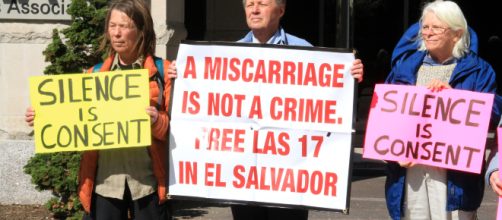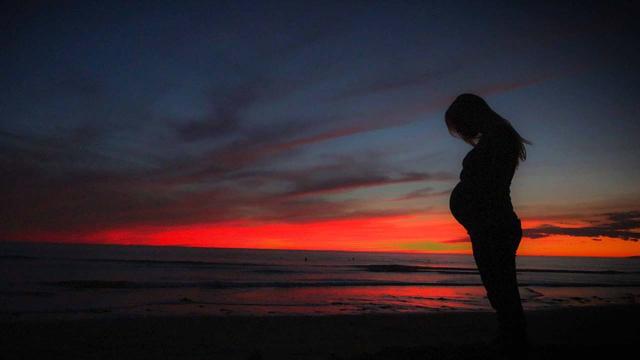Imelda Cortez, a young woman from El Salvador, was acquitted on December 17th after a lengthy legal battle which had seen her facing up to 20 years in prison after enduring repeated rape at the hands of her stepfather since she was eleven years old. Her crime? Allegedly attempting to abort the foetus conceived from one of these attacks.
El Salvador has some of the world’s strictest abortion laws according to the World Health Organisation— a total ban on terminating a pregnancy, even in cases of rape or where the mother’s life is at risk. In this particular case, Cortez consistently insisted she was unaware she was pregnant and never tried to induce an abortion; her daughter, confirmed by DNA evidence to have been fathered by Cortez’s stepfather, is now nearly two years old.
The saga— in which the government quickly prosecuted Cortez while dragging its feet on investigating her rape claims and even casting doubt on whether she had been assaulted— is just one recent example of the pervasive double standard placed on rape survivors and their children.
Rebuilding a life after having been raped is task enough for victims; forcing them to jump through hoops in the legal system, navigate ostracisation and communal disbelief at survivors’ stories is inarguably cruel. Worse still, this tragic story continues to play out across generations and across the world. On top of struggling to obtain restitution in the wake of Sexual Violence, rape survivors are cast out of their own families, denied work opportunities and rejected by potential partners, while their children are shunned from birth.
The DRC: A particularly severe flashpoint
Certain war-torn zones are particular flashpoints for this devastating cycle. The U.N. has referred to the Democratic Republic of the Congo (DRC) as the “rape capital of the world.” 12 percent of women in the country have been raped, and an appalling 48 women are assaulted an hour. In the east Congolese village of Munigi, Passy Mubalama, a former journalist and founder of rehabilitation initiative Aidprofen, helps women such as 20-year-old mother Yvette (a pseudonym), who was raped by two uniformed men while working in the bean fields.
Almost as devastating as the assault itself for Yvette has been the ostracization she has dealt with since. Yvette was forced to confess the attack to her mother after she fell pregnant.
Her mother, furious at the “shame” she felt Yvette had brought to the family, kicked her out of her home, eventually relenting to allow her to sleep in the backyard. Yvette turned to ill-paid sex work to survive, and still tells people that her son’s father died to eschew the stigma of having been raped.
Uzamukunda Esperance of the Congolese village of Kiwanja has a similar story: Esperance has been excluded from her community ever since she was raped by the military men who killed her husband. Fortunately, she has managed to start her own small business, manufacturing the local bread chikwangue to make ends meet as a single mother. She is one of the lucky ones. As many as 80 percent of rape survivors in the DRC lose their jobs and are forced to flee their communities.
A global problem
As Congolese gynaecologist and recipient of the 2018 Nobel Peace Prize Denis Mukwege commented, however, the problem is by no means limited to any single country. “When this happens, don’t say ‘It’s Iraq, Congo, Colombia, or Korea’,” Mukwege insisted, “we have just to say our humanity was abused.”
As things stand, communities around the world have struggled to do right by their citizens who have suffered sexual assault. In many cases, women are encouraged to marry their rapists in a twisted attempt to contain the fallout of the crime. Only last year did lawmakers in El Salvador abolish a law allowing men to marry underage girls they had impregnated, while such laws remain on the books in countries such as Kuwait and Tajikistan.
In Malaysia, one lawmaker views such marriages between victims and their rapists as a chance to “turn a new leaf in life” and suggested that girls as young as 9 who had been raped might find marrying their assaulter a suitable “remedy” which would allow them to have “a healthier, better life”. Even in some US states, underage marriage is similarly used as a means of curbing out-of-wedlock birth or erasing victims’ “shame”.
Effects on the next generation
Such responses have devastating implications not only for the women who have been assaulted but for their children. Inn El Salvador, many survivors are forced to carry any pregnancy resulting from the rape to term, only for those children to be brutally maligned in turn.
A generation of Vietnamese adults have grown up stigmatised by their mothers’ brutal ordeals. The Lai Dai Han (meaning “mixed blood”), as they have come to be known, were conceived of rape at the hands of South Korean troops stationed in Vietnam during the war in the 1970s. Ostracised by Vietnam, their existence ignored by South Korea, the Lai Dai Han—which may number as many as 30,000— and their mothers are demanding their voices be heard to this day.
Similarly, Emmanuel Mukeshamfura, a young Rwandan man, told The Times that he worries that he has “bad blood”. Emmanuel is one of a generation known as "les enfants mauvais souvenirs", the children of bad memories. After Emmanuel’s Tutsi mother was raped by his Hutu father amid the carnage of Rwanda’s genocide 24 years ago, Emmanuel has spent his life being shunned and called slurs such as “Hutu killer” by his mother’s family and peers.
Time to end the double burden
With the growing #MeToo movement and the awarding of this year’s Nobel Peace Prize to Dr. Mukwege and Yazidi activist Nadia Murad, sexual assault seems to finally be fighting its way from the shadows. Removing social stigma and legal barriers to survivors’ recovery—and that of their children— is an essential first step in the fight to address the scourge of rape.




